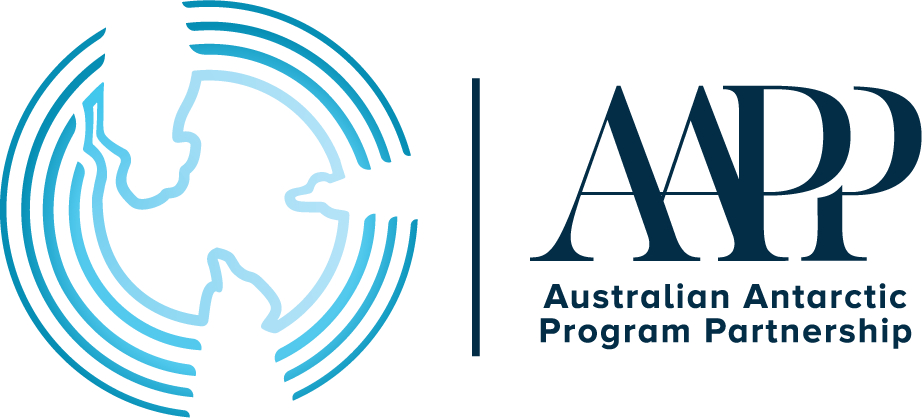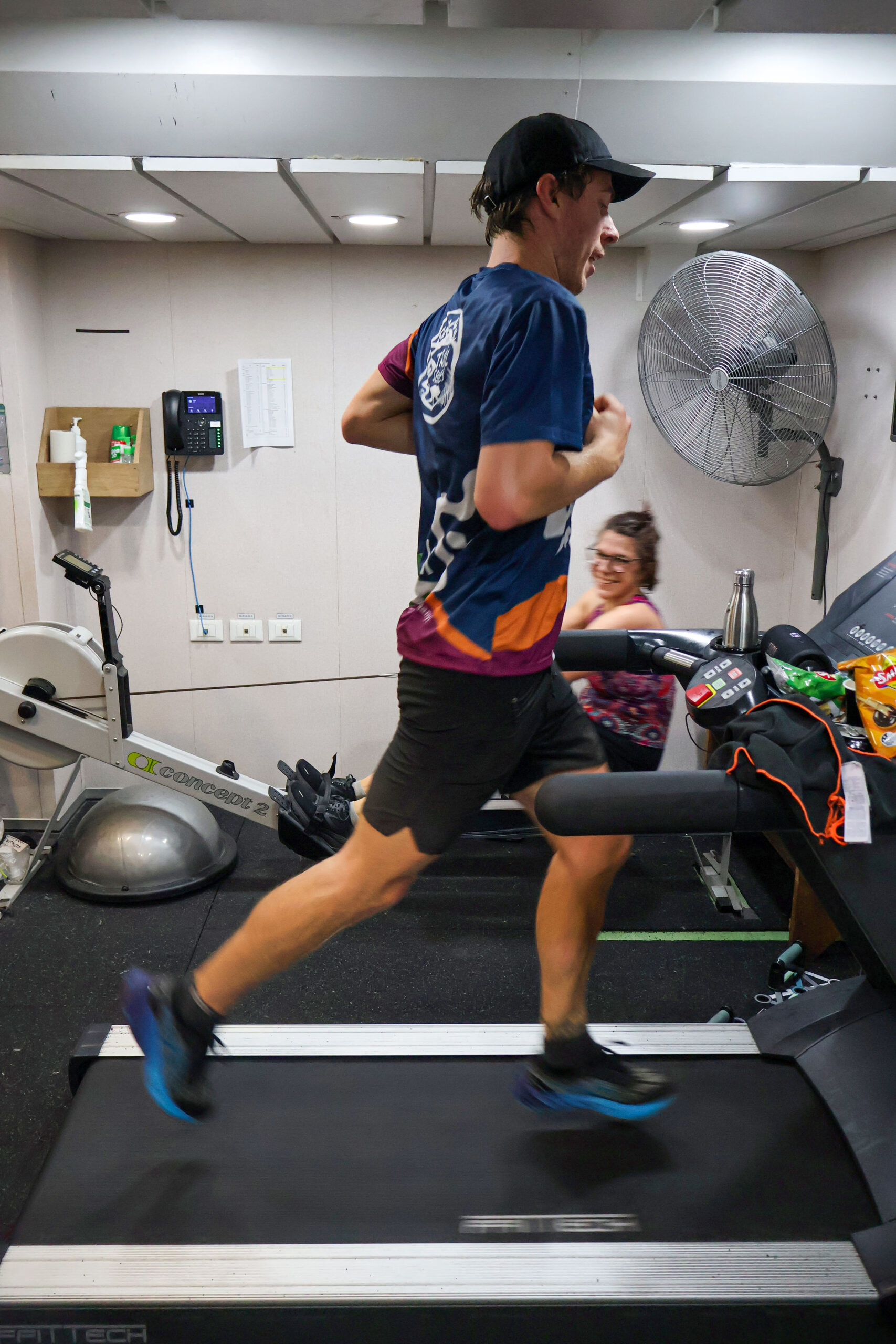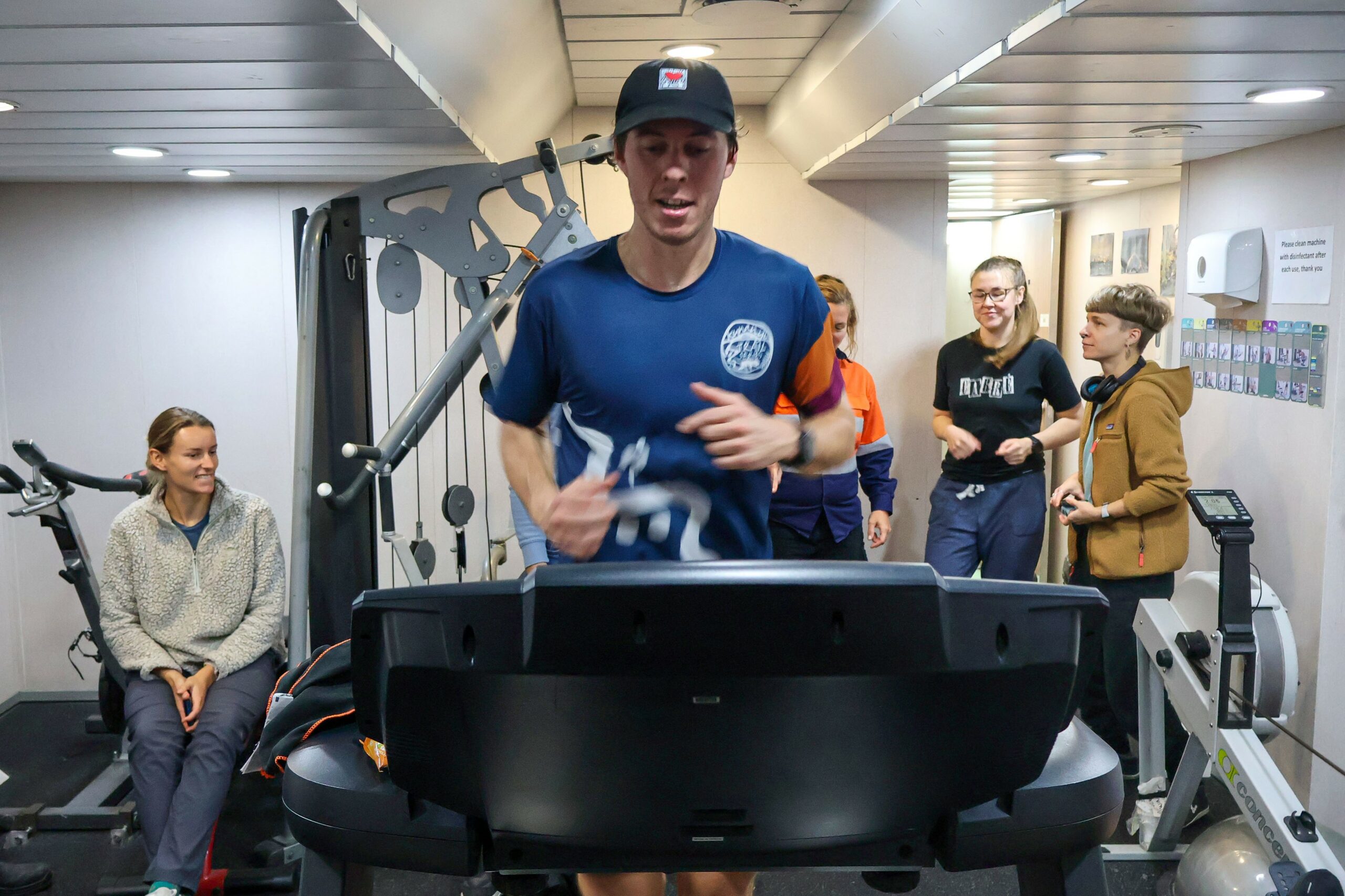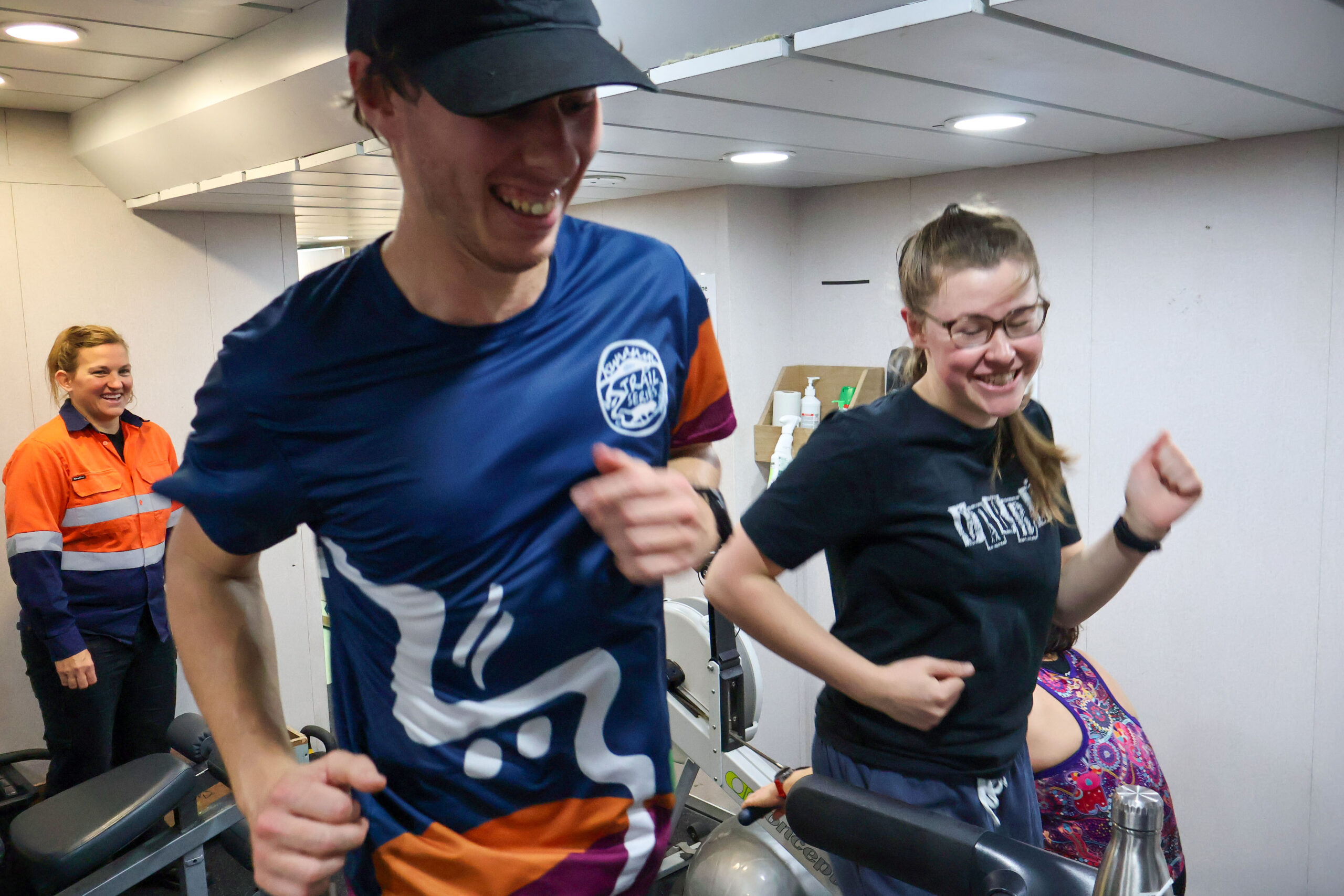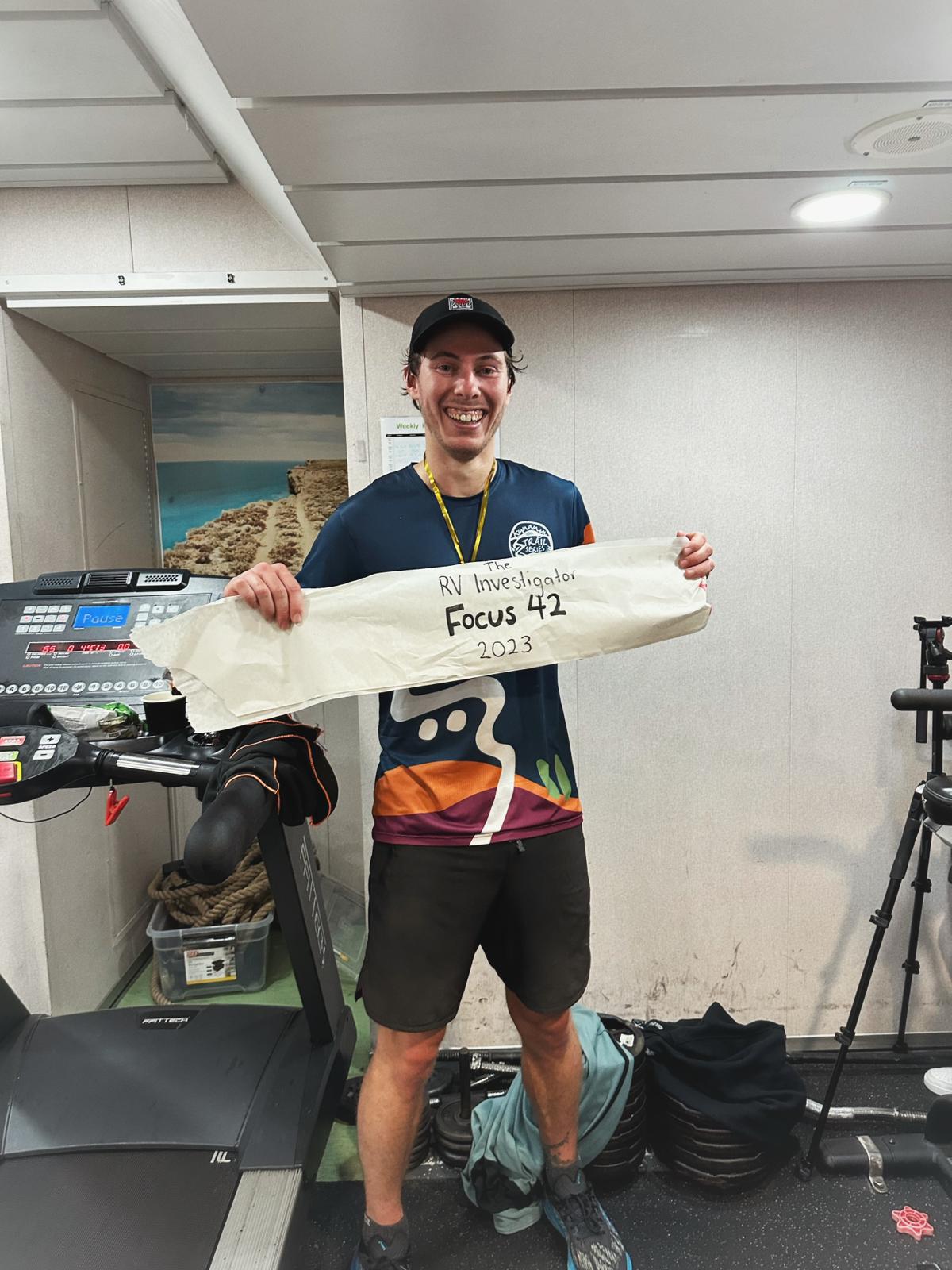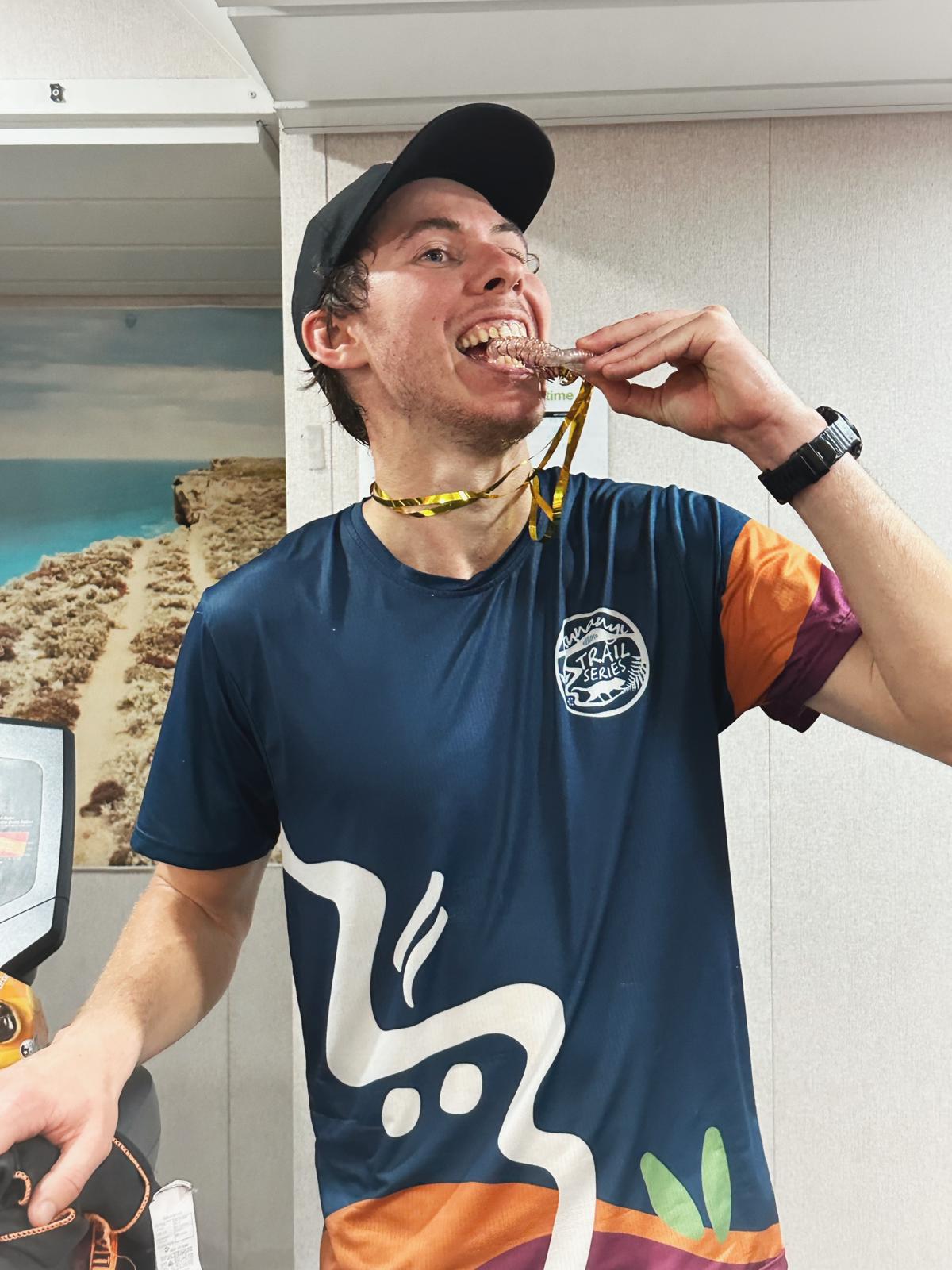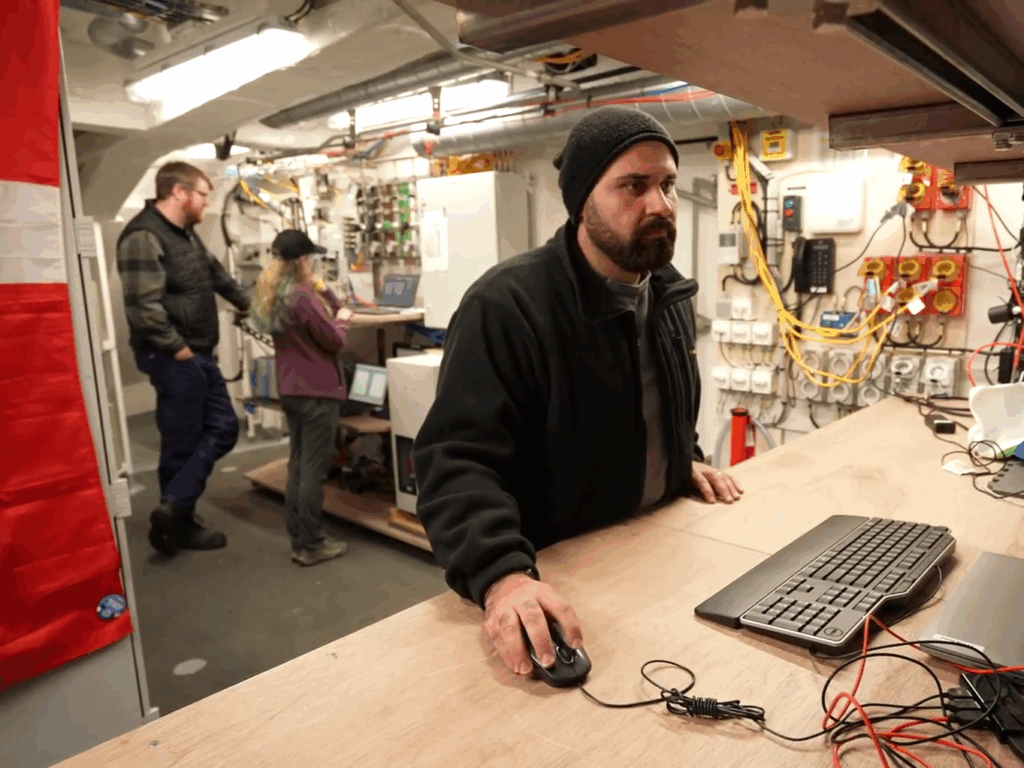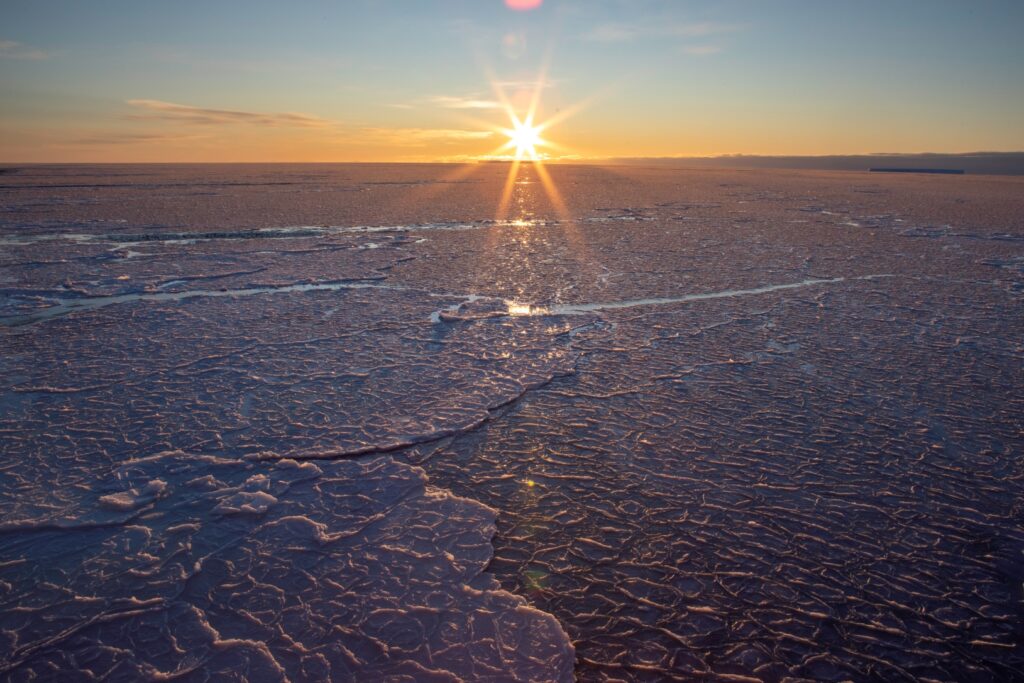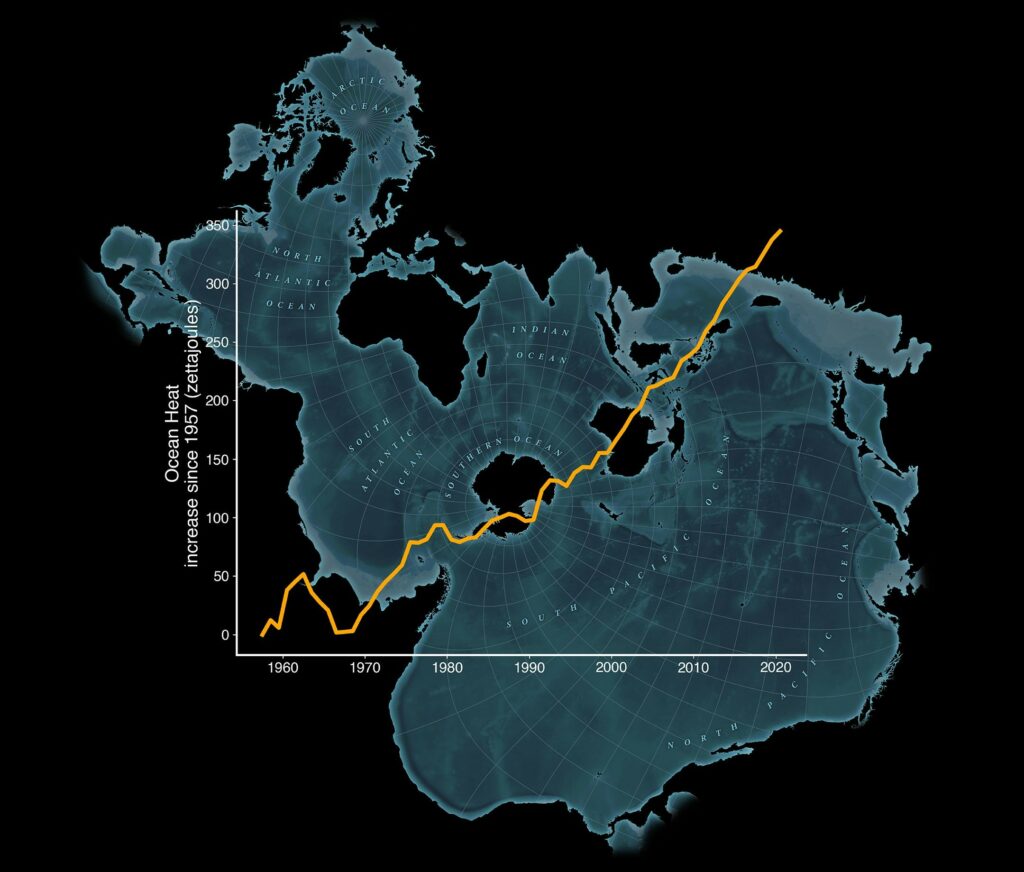The FOCUS 42.2 marine marathon
James Wyatt
As someone who loves trail running and gets to experience all the great outdoors that Tassie has to offer, I’ve always despised the idea of running indoors. I mean, why would you? Even if it’s wet, there is still so much fun to be had on the trails, specifically in the form of slipping and sliding in mud. The thought of running in an enclosed room, staring at a wall for minutes on end – I shudder at the thought.
Hence, there was some serious concern entering this voyage from some of the science party (specifically Helen) about how they were going to put up with me not burning all my extra energy running. So, rather than putting my whole shift through absolute sufferance for 38 days, I have elected to lean into something I never thought I’d do – run on a treadmill.
To really get into it I figured that I needed to set myself a challenge. So, the idea was formulated that I would just force myself to do 100 km a week on the treadmill. The thought process was that I would know by the end of the week (or by the first hour) whether I would love it or hate it. I decided to run everyday, and just tick off the kilometres an hour at a time. So in the second week of the voyage, the daunting task began. I ticked off 18 km the first day and was seriously questioning my life choices. I think 3 km in I was bored enough that birdwatching started to seem like a reputable option…
But onwards, ever onwards. Days 3 and 4 were tough, with the body really not used to treadmill running and muscles becoming sorer by the day. 40 km to go felt like 80 km. After that though, something clicked, and it suddenly became easier. Likely, it was my mindset. I’m blessed to have some seriously inspirational people in my life who make me realise just how lucky I am that: a) I have the time to be able to do something I love in a pretty extraordinary place and, b) my body is capable of it. Thinking of these truly inspiring people completely reset me and the last few days were incredibly enjoyable.
At the end of the challenge, people on the ship began to ask me what was next. We still had another few weeks to go, so why not set myself another challenge? The question I was asking: do you think anybody has ever run a marathon on a treadmill in the Southern Ocean? I mentioned the plan to a land-based friend, and his attitude was ‘well when else are you going to get the opportunity to do it? Plus it will be super funny’. After that, I was sold.
With a 24-hour Triaxus tow coming up (when we can’t do CTDs), the perfect opportunity arose for the science party to have a fairly free day, and what better way to use a free day than to run a marathon? I mentioned the idea to a few colleagues and received mostly bemusement. Bemused shaking of heads, and a lot of questions touching on notions of ‘have you gone mad?’ and ‘why would you do that to yourself?’. My answer – ‘because it will be funny’.
And funny it was. I could not have asked for a better support crew than my shift mates, with multiple dance buddies, running buddies, and everyone coming down just for some general encouragement, snack deliveries, and chat. 42.2 km in 3 hours 26 minutes! The time flew by, my body felt (mostly) good, and everyone else’s high spirits kept me also in high spirits. A huge shoutout to Julie for coming and rowing by my side for the last hour, and a huge shoutout to everyone that came down at the end for an outpouring of support. This will go down in the books as one of my favourite runs, and a marathon I am unlikely ever to forget.
So, was this the first Southern Ocean marathon? I’m claiming it as a YES. Guinness Book of World Records – I’m waiting for your call.
James Wyatt is a PhD student with AAPP at the Institute for Marine and Antarctic Studies in UTAS. His PhD project is assessing how and why the Southern Ocean is changing through time, by creating a comprehensive climatology of physical water properties in the Southern Ocean to explain variability in transport of heat and freshwater across the Antarctic Circumpolar Current.
This research is supported by a grant of sea time on RV Investigator from the CSIRO Marine National Facility which is supported by the Australian Government’s National Collaborative Research Infrastructure Strategy (NCRIS).
